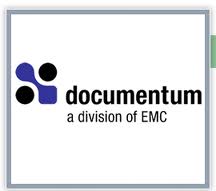
Content Intelligence Services (CIS) is an extension to the EMC Documentum content management platform that enables automatic classification and categorization of content in the Documentum repository. Its benefit is well organized, classified, and categorized content. With CIS, content is parsed and analyzed and classification rules are applied. The results of the classification can then be used for categorization as keywords to populate content metadata.
The capability of automatically creating keywords to populate content metadata can remove the burden from end users who otherwise have to do it manually. Many users struggle to consistently populate metadata as content is being created which significantly limits its future use since metadata is what enables processing of the content.
CIS eliminates this dependency on users. CIS can propose metadata to users who can accept or modify them as needed. CIS can provide support for a combination or automatic and manual classification with a special user interface to category owners. Category owners can make a classification decisions manually in cases where the automatic rules cannot classify content with a preset certainty level. The user interface is built into every Documentum client such as Webtop and becomes active upon detection of CIS in the system.
With CIS, the results of the classification can be used for content categorization which assigns content to appropriate categories. Typically, categories are represented by a folder structure to which content is linked. A category hierarchy – or taxonomy – is usually common to a department or an organization and allows all users to share the same navigation view for content in active project or content that has been archived.
CIS comes with prepackaged taxonomies for various industries. These taxonomies can be customized and used either out of box or as a starting point for a customization. Users can add categories and sub-categories to these taxonomies.
CIS supports major European languages. This enables the classification of local content in its native language against an enterprise-wide or local taxonomy. Using this multilingual capabilities, companies can deploy CIS globally, enhancing globalization capabilities of Documentum that include pervasive Unicode compatibility and localized user interfaces.
Next time: EMC Captiva Dispatcher.
 RSS Feed
RSS Feed
